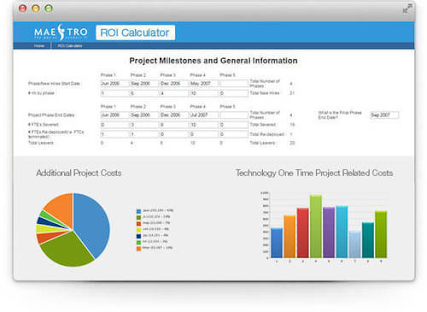The article discusses the 7 essential skills that you need in order to survive as a product manager in the world of Artificial Intelligence and Machine Learning.
1. Dissecting the Product Management Process
Product management is a process that helps you develop and market successful products. It involves everything from ideation and concept development to product launch and post-launch analysis.
To be a successful product manager, you need to have a strong understanding of the product development process and be able to effectively communicate with all stakeholders. You also need to be able to work with data and analytics to make informed decisions about your product.
Some of the most essential skills you need for product management include:
- Strong project management skills
- Excellent communication skills
- Analytical skills
- Problem-solving skills
- Critical thinking skills
- Organizational skills
2. The Elements of a Great Product
Being a product manager is all about understanding what your users need and want, and then delivering it to them in the most efficient way possible.
In order to do this, you need to have a firm grasp on a few essential skills.
 First, you need to be able to understand data. This means being able to analyze user behavior, understand what they are trying to accomplish, and identify any patterns or trends.
First, you need to be able to understand data. This means being able to analyze user behavior, understand what they are trying to accomplish, and identify any patterns or trends.
 Second, you need to be able to communicate effectively. This means being able to explain your ideas clearly and concisely, and get buy-in from other stakeholders.
Second, you need to be able to communicate effectively. This means being able to explain your ideas clearly and concisely, and get buy-in from other stakeholders.
 Third, you need to be able to prioritize effectively. This means knowing which features are the most important to your users, and which ones can wait for another time.
Third, you need to be able to prioritize effectively. This means knowing which features are the most important to your users, and which ones can wait for another time.
 Fourth, you need to be able to manage your time effectively. This means being able to juggle multiple tasks and priorities, and stay organized even when things are getting hectic.
Fourth, you need to be able to manage your time effectively. This means being able to juggle multiple tasks and priorities, and stay organized even when things are getting hectic.
 Finally, you need to be able to handle change. This means being flexible and adaptable when things don’t go according to plan, and being able to pivot quickly when necessary.
Finally, you need to be able to handle change. This means being flexible and adaptable when things don’t go according to plan, and being able to pivot quickly when necessary.
If you can master these skills, you’ll be well on
3. Understanding and Using Customer Feedback
In the world of artificial intelligence and machine learning, product managers play a vital role in developing and managing products. They are responsible for gathering customer feedback, managing product development cycles, and ensuring that products meet customer needs.
Customer feedback is one of the most important tools that product managers use to improve products. It allows them to understand what customers want and need, and it helps them to identify areas where products can be improved.
Product managers need to be able to collect customer feedback effectively, and they also need to know how to use it to inform product decisions. Here are some tips for gathering and using customer feedback:
 Use surveys to collect customer feedback.
Use surveys to collect customer feedback.
 Use social media to listen to what customers are saying about your product.
Use social media to listen to what customers are saying about your product.
 Use customer feedback to inform your product roadmap.
Use customer feedback to inform your product roadmap.
 Use customer feedback to improve your product marketing strategy.
Use customer feedback to improve your product marketing strategy.
 Use customer feedback to improve the user experience of your product.
Use customer feedback to improve the user experience of your product.
4. Creating an Actionable Dashboard
Are you a product manager who wants to survive in the world of artificial intelligence and machine learning? Then you need to have the right skills!
One of the most essential skills for product managers is creating an actionable dashboard. This will help you track the progress of your product and make sure that it is on track.
To create an actionable dashboard, you need to first understand the data that you are collecting. You need to know what metrics are important and how to interpret them. Once you have this understanding, you can then start to create visualizations that will help you track your product's progress.
Creating an actionable dashboard is not easy, but it is essential if you want to be a successful product manager in the AIML world.
5. Knowing Your Channels
In the world of artificial intelligence and machine learning, it is essential to know your channels. There are many different types of channels out there, and each one has its own unique set of skills and requirements.
Some of the most popular channels include:
 Social media platforms like Facebook, Twitter, and LinkedIn
Social media platforms like Facebook, Twitter, and LinkedIn Online forums and discussion boards
Online forums and discussion boards News websites and blogs
News websites and blogs Video sharing websites like YouTube and Vimeo
Video sharing websites like YouTube and Vimeo Educational websites like Coursera and Udacity
Educational websites like Coursera and Udacity
Each channel has its own strengths and weaknesses, so it is important to choose the right one for your needs. For example, if you want to reach a wide audience with your product, then you will need to use a channel that has a large reach. However, if you only need to reach a specific target audience, then you can use a more niche channel.
Once you have chosen your channel, it is important to learn all you can about it. This includes understanding how it works and what its users want. Only then will you be able to effectively market your product through that channel.
6. Evaluating Product ROI
Product managers are responsible for ensuring that a product is profitable and meets the needs of its target market. They need to be able to evaluate a product's potential return on investment (ROI) before making decisions about whether or not to invest in it.
There are several factors that product managers need to consider when evaluating a product's ROI. These include the product's development costs, marketing costs, and sales projections. Additionally, product managers need to be aware of the competitive landscape and how a new product would fit into it.
Once a product manager has evaluated a product's ROI, they can then make decisions about whether or not to invest in it. If a product has a high potential ROI, it is likely worth investing in. However, if a product has a low potential ROI, it may not be worth investing in.
7. Using Progress Tracking Tools
If you're in product management, you know that the AI and ML world is always changing. To keep up, you need to be able to track progress and quickly adapt to new tools and processes.
Here are some of the most essential skills you need:
 The ability to use progress tracking tools.
The ability to use progress tracking tools.
 The ability to understand data.
The ability to understand data.
 The ability to communicate with stakeholders.
The ability to communicate with stakeholders.
 The ability to manage change.
The ability to manage change.
 The ability to prioritize tasks.
The ability to prioritize tasks.
 The ability to stay organized.
The ability to stay organized.
 The ability to think creatively.
The ability to think creatively.
 The ability to make decisions quickly.
The ability to make decisions quickly.
First, you need to be able to understand data. This means being able to analyze user behavior, understand what they are trying to accomplish, and identify any patterns or trends.
Second, you need to be able to communicate effectively. This means being able to explain your ideas clearly and concisely, and get buy-in from other stakeholders.
Third, you need to be able to prioritize effectively. This means knowing which features are the most important to your users, and which ones can wait for another time.
Fourth, you need to be able to manage your time effectively. This means being able to juggle multiple tasks and priorities, and stay organized even when things are getting hectic.
Finally, you need to be able to handle change. This means being flexible and adaptable when things don’t go according to plan, and being able to pivot quickly when necessary.
Use surveys to collect customer feedback.
Use social media to listen to what customers are saying about your product.
Use customer feedback to inform your product roadmap.
Use customer feedback to improve your product marketing strategy.
Use customer feedback to improve the user experience of your product.





Comments
Post a Comment